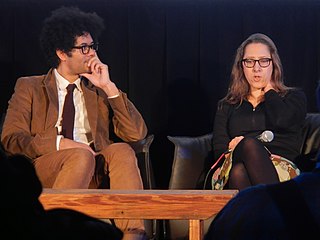A Quote by Ben Schnetzer
A lot of times, when you're seeing something that you've done, you're thinking about the experience you had making it, not about the experience of the product.
Related Quotes
A lot of times, when you have a disability, one of the things you deal with is other people's projections of what your experience is and their fear about it, and not seeing the experience you're having. There's nothing horrifying about it to me. It is what I deal with. It is my reality and my life, but it's not horrible.
User experience is really the whole totality. Opening the package good example. It's the total experience that matters. And that starts from when you first hear about a product experience is more based upon memory than reality. If your memory of the product is wonderful, you will excuse all sorts of incidental things.
I'm not a huge fan of 3-D, though. Honestly, I think that movies are an immersive experience and an audience experience. There's nothing like seeing a film with 500 people in a theater. And there's something about putting on 3-D glasses that makes it a very singular experience for me. Suddenly I'm not connected to the audience anymore.
Theatrical times are different from concert times, to put it simply. Taking a figure like [Mahatma] Gandhi and setting him on a stage requires thinking about what theater is about and what the whole experience is about and what we're trying to communicate in that way, so you get into certain less abstract considerations.
You're supposed to be writing from experience - experience with people, with reading, seeing some homeless guy on the street and making up some story of him in your head. If you never see any of that or have those conversations or even sleep enough to have vivid dreams, then what are you writing about?




































